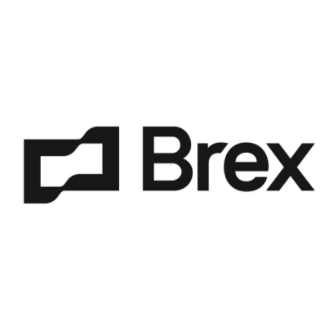Maximizing the Power of a Business Credit Card
What to Buy with Your Business Credit Card
by Joyce Chen
This page may contain affiliate links. Our assessments are grounded solely in the product’s merits and performance.
A business credit card can be a valuable tool for small business owners, offering a flexible way to manage expenses, build credit, and even earn rewards. However, like any financial product, it comes with responsibilities and potential pitfalls. This guide explores what you can buy with a business credit card, how to optimize your spending, and some healthy spending tips.
What can you buy with a business credit card?
First and foremost, you definitely should NOT use a business credit card for personal use. Even if you’re the business owner and will pay it back yourself, it’s still not a smart idea to mix personal and business finances. Anything you charge onto your business credit card should be clearly related to powering your business. Some of these things can include:
- Office Supplies and Equipment
- Computers, printers, and other essential tools.
- Furniture and fixtures for your workspace.
- Travel and Lodging
- Flights, hotels, car rentals, and meals during business trips.
- Marketing and Advertising
- Social media ads, Google Ads, and traditional marketing campaigns.
- Subscriptions and Software
- Monthly or annual fees for services like accounting software, customer relationship management (CRM) systems, or cloud storage.
- Utilities and Communication
- Internet, phone bills, and other utility payments.
- Inventory and Supplies
- Purchase raw materials or finished goods for resale.
- Employee Expenses
- Employee training, travel expenses, and small perks like team lunches.
What shouldn’t you buy with a business credit card?
There aren’t many hard and fast business credit card rules, but there are still some best practices to abide by. Not everything can or should go on your business credit card. Some expenses to avoid charging to your card include:
- Personal Expenses
- Like we mentioned earlier, mixing personal and business expenses can lead to accounting issues and might violate the terms of your credit card agreement.
- Large, Long-Term Investments
- Expensive machinery or real estate may require specialized financing options like loans or leases. You don’t want to use up your whole credit limit on something that will take you a long time to pay off.
- Cash Advances
- These often come with high fees and interest rates, making them an expensive way to access cash. If you find yourself often needing cash, consider a small business loan in the form of a line of credit.
- Tax Payments
- While some business credit cards allow this, the associated fees can negate any rewards you might earn.
- Luxury or Non-Essential Items
- Purchases that don’t contribute to business growth or operations should be reconsidered. Especially for small businesses and startups where budgets are tight, you want to be careful with your spending. While your credit limit may allow for more expensive purchases, you will still need to pay it back, so think twice before swiping.
How to optimize business credit card spending
Your business credit card works just like a personal credit card, but will usually come with extra features specific to business spending. To get the most out of your business credit card, follow these strategies:
- Leverage Rewards Programs
- Choose a card that offers rewards in categories where your business spends the most, such as travel or office supplies. Branded business credit cards like the AmEx Hilton Honors Business Card or Chase United Business Card are great options if you are a frequent, brand-loyal traveler. On the other hand, if you don’t want to bother with tracking categories, cards like Ramp and AmEx Blue Business Cash offer a simple flat-rate cashback.
- Pay in Full and On Time
- Think of your credit card like a debit card. Don’t borrow more money than you can afford to pay back. Avoid interest charges by paying your balance in full each month. Plus, timely payments also build your business credit score.
- Set Spending Limits for Employees
- If employees have access to the card, set clear limits and monitor their usage to prevent overspending. Many cards will allow you to distribute employee cards that will allow you to track each individual’s spending and set limits so they can’t overspend.
- Track Expenses Carefully
- Use accounting software or apps to categorize and monitor spending, making tax time easier. Some cards like Ramp and Brex will have built-in expense management features, so be sure to leverage them if they are available to you.
- Take Advantage of Introductory Offers
Many business credit cards offer sign-up bonuses or 0% introductory APR periods. Make sure you can fulfill the requirements to receive the sign-up bonus before committing, as they’ll often require a certain amount of spending before you are eligible. For example, the Capital One Spark 2x Miles for Business offers a 50,000 mile bonus for spending $4,500 on purchases in the first three months.
Healthy spending tips
To maintain financial health while using a business credit card:
- Create a Budget
- Know your limits and stick to a spending plan aligned with your business goals. A business credit card is not for impulsive purchases. Each expense should fit into a category in your budget.
- Review Statements Monthly
- Reconcile your credit card statements with your accounting records to ensure accuracy. While rare, incorrect charges still happen. Protect yourself against overpaying or falling victim to fraud.
- Use Credit for Short-Term Needs
- Again, avoid using credit for long-term projects or investments that you can’t pay off quickly. You may find yourself using a combination of a business credit card, business line of credit, or term loans to fund your business expenses.
- Monitor Your Credit Utilization
- Keep your credit utilization ratio low to maintain a healthy credit score. Remember that for some business credit cards, as the primary account holder, you are personally responsible for paying off the card and your personal credit score may be affected.
- Regularly Evaluate Your Credit Card Needs
- As your business grows, your credit card needs may change. Consider upgrading to a card with better rewards or higher limits.
Conclusion
A business credit card can be a powerful financial tool when used responsibly. It can help small business owners manage cash flow, track expenses, and earn rewards. However, it’s crucial to use it wisely by avoiding personal purchases, steering clear of high-interest cash advances, and paying balances on time. By following best practices, you can maximize the benefits of your business credit card and set your business up for financial success.
You May Be Interested In

Brex
![]()
![]()
![]()
![]()
![]()
Brex is an amazing option for funded startups that want a low-cost, feature-rich business card and spend management.

Ramp
![]()
![]()
![]()
![]()
Small-to-medium sized companies with regular, predictable expenses that prioritize direct savings will benefit the most from Ramp’s features.

AmEx Hilton Honors Business
![]()
![]()
![]()
![]()
With the AmEx Hilton Honors Business Card, the more you spend, the more you earn. If you are willing to spend big, the rewards can certainly shape up to be worth the pain.

Chase United Business
![]()
![]()
![]()
![]()
For business owners that frequently fly with United and like to stay in Marriott hotels, this card can help you save money and travel more comfortably.

